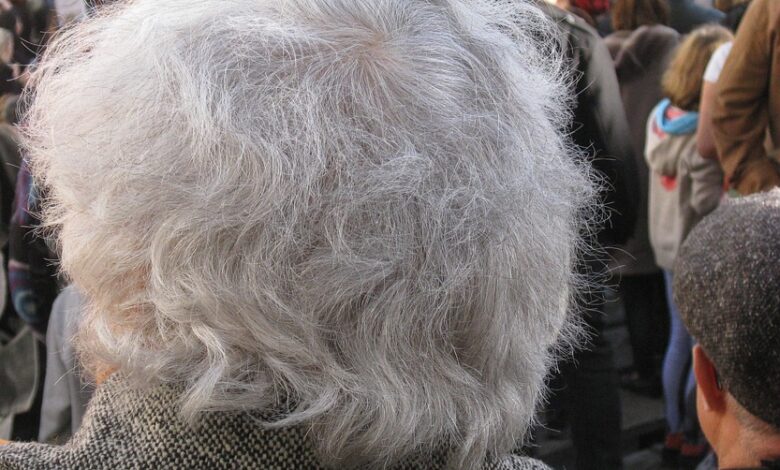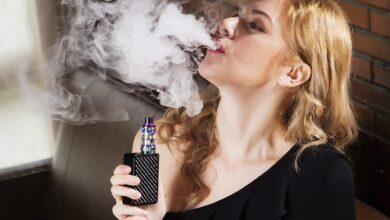A Guide about wellhealthorganic.com/know-the-causes-of-white-hair-and-easy-ways-to-prevent-it-naturally

White hair is something many of us will experience as we age, but what if it starts happening earlier than expected? Understanding why our hair turns white and exploring natural methods to prevent or manage it can be enlightening. This comprehensive guide will delve into the science behind wellhealthorganic.com/know-the-causes-of-white-hair-and-easy-ways-to-prevent-it-naturally.
Understanding White Hair
White hair occurs when the pigment-producing cells in our hair follicles, known as melanocytes, stop producing melanin, the substance that gives hair its color. Without melanin, hair turns white or gray. The absence of melanin affects hair at the root, meaning that hair growing from the follicle is white, while existing hair may gradually lose color.
The Science Behind Hair Color
Hair color is determined by the type and amount of melanin present in the hair follicles. There are two main types of melanin: eumelanin (which can be black or brown) and pheomelanin (which is yellow or red). The combination of these pigments results in the wide range of hair colors seen across different individuals. As we age, melanin production decreases, leading to the gradual graying or whitening of hair.
Causes of White Hair
Genetics play a crucial role in when and how quickly we experience white hair. If your parents or grandparents had premature graying, you might be more likely to experience it yourself. Genetic predisposition is one of the most significant factors influencing the timing of white hair onset.
Common Genetic Conditions
Certain genetic conditions can accelerate the graying process. For instance, conditions like vitiligo, which causes loss of pigment in patches of skin, can also affect hair color. Similarly, conditions such as albinism affect melanin production, leading to white or very light-colored hair from birth.
Aging Process
As we age, the production of melanin in hair follicles naturally decreases. This reduction in melanin is why most people experience some degree of graying or whitening of hair as they grow older. It’s a normal part of the aging process and usually begins in the mid-30s to early 40s.
Typical Age for Onset
While most people start noticing white hair in their 30s or 40s, some may experience it earlier due to genetic factors. Early onset of white hair can be a sign of genetic predisposition or other underlying factors.
Nutritional Deficiencies
Certain nutrients are crucial for maintaining healthy hair color. Deficiencies in vitamins such as B12, folate, and biotin, as well as minerals like copper and zinc, can contribute to premature graying. These nutrients support overall hair health and pigment production.
Impact of Deficiencies
When your diet lacks these essential nutrients, it can affect melanin production and lead to early graying. Ensuring a well-balanced diet with adequate vitamins and minerals can help maintain your hair’s natural color for longer.
Health Conditions
Autoimmune disorders such as vitiligo and alopecia areata can impact hair color. In these conditions, the immune system mistakenly attacks pigment cells or hair follicles, leading to white or gray patches of hair.
Thyroid Issues
Thyroid imbalances, particularly hypothyroidism and hyperthyroidism, can also affect hair color. An underactive or overactive thyroid can disrupt normal melanin production and contribute to premature graying.
Other Related Conditions
Certain other health conditions, like pernicious anemia and certain types of cancer treatments, can influence hair color. It’s important to address any underlying health issues that might contribute to changes in hair pigmentation.
Lifestyle Factors
Stress is often cited as a factor that can accelerate the graying process. High levels of chronic stress may impact the overall health of your hair and contribute to premature white hair. Managing stress through relaxation techniques and a healthy lifestyle can be beneficial.
Smoking and Alcohol Consumption
Smoking and excessive alcohol consumption have been linked to various health problems, including premature graying. These habits can affect overall health and hair pigmentation, so reducing or eliminating them may help maintain your natural hair color longer.
Natural Prevention Methods
Eating a diet rich in antioxidants, vitamins, and minerals can support healthy hair. Foods like fruits, vegetables, nuts, seeds, and lean proteins provide the nutrients necessary for maintaining natural hair color. Incorporate foods high in B vitamins, iron, and zinc for optimal hair health.
Supplements and Vitamins
Taking supplements can also help if you’re not getting enough nutrients from your diet. Vitamins such as B12, biotin, and folic acid, along with minerals like copper and zinc, support melanin production and overall hair health.
Hair Care Routines
Using hair care products that are free of harsh chemicals can help maintain healthy hair and scalp. Look for shampoos and conditioners that are sulfate-free and contain natural ingredients. Regularly moisturizing and conditioning your hair can also support its health.
Home Remedies and Treatments
Several natural treatments can support hair health and potentially prevent premature graying. Remedies like applying amla oil, curry leaves, or henna can be beneficial. These ingredients are believed to nourish the hair and support melanin production.
Stress Management
Managing stress through techniques such as meditation, yoga, and deep breathing exercises can help maintain overall health, including the health of your hair. Reducing stress levels may also help slow down the graying process.
Mindfulness and Relaxation
Incorporate mindfulness practices into your daily routine to help manage stress effectively. Taking time for relaxation and self-care can positively impact your mental and physical well-being, potentially benefiting your hair health.
Avoiding Harmful Habits
Avoiding smoking and limiting alcohol consumption can have a positive effect on your overall health and hair color. These habits can contribute to premature aging and hair changes, so adopting a healthier lifestyle can help prevent early graying.
Reducing Chemical Exposure
Minimize exposure to harmful chemicals and pollutants that can affect your hair health. Choose natural or organic products whenever possible and avoid excessive use of hair dyes and styling products that contain harsh chemicals.
Myths and Misconceptions
There are many myths surrounding white hair, such as the belief that pulling out a gray hair will lead to more gray hairs. In reality, pulling out a gray hair will not affect the number of gray hairs you have, as each hair follicle produces its own hair.
Debunking Myths
Understanding the true causes of white hair helps dispel common myths. White hair is primarily due to genetic factors and aging, not factors like stress or pulling out hair. Educating yourself about the real reasons behind white hair can help manage expectations and approach prevention methods effectively.
When to Seek Professional Help
If you experience sudden or significant changes in your hair color, it may be worth consulting a healthcare professional. Unusual changes in hair pigmentation, especially if accompanied by other symptoms, could indicate an underlying health issue.
Types of Specialists to Consult
Dermatologists and trichologists are specialists who can help diagnose and treat hair-related issues. If you have concerns about premature graying or other hair conditions, seeking professional advice can provide guidance and potential treatment options.
Conclusion on wellhealthorganic.com/know-the-causes-of-white-hair-and-easy-ways-to-prevent-it-naturally
Understanding the causes of white hair and exploring natural prevention methods can help you maintain your hair’s natural color and health. By addressing genetic, nutritional, and lifestyle factors, you can take proactive steps to manage white hair. Embrace a healthy lifestyle, and don’t be discouraged by changes—white hair is a natural part of life for many.
FAQs on wellhealthorganic.com/know-the-causes-of-white-hair-and-easy-ways-to-prevent-it-naturally
What is the primary cause of white hair?
The primary wellhealthorganic.com/know-the-causes-of-white-hair-and-easy-ways-to-prevent-it-naturally is the reduction in melanin production as we age. Genetics also play a significant role in determining when and how quickly your hair turns white.
Can white hair be reversed naturally?
While there is no guaranteed way to reverse white hair naturally, maintaining a healthy diet, managing stress, and using natural hair care products may help slow down the graying process.
Are there any effective home remedies for preventing white hair?
Home remedies such as applying amla oil, curry leaves, and henna can support hair health and potentially help in maintaining its color. However, results can vary, and these remedies may not completely prevent white hair.
How does stress contribute to white hair?
Chronic stress may impact overall health, including hair health. While stress alone may not directly cause white hair, it can exacerbate other factors contributing to premature graying.
When should I see a doctor about white hair?
If you experience sudden or significant changes in hair color, or if white hair is accompanied by other health symptoms, consult a healthcare professional to rule out underlying health conditions.




